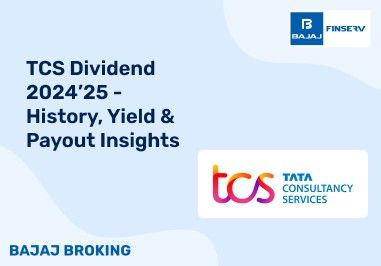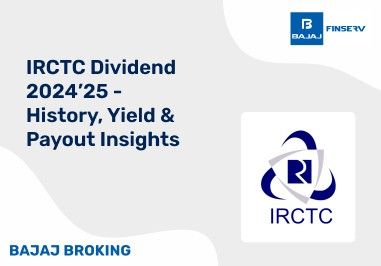BAJAJ BROKING
Tankup Engineers IPO is Open!
Open a Free Demat Account
Trade Now, Pay Later with up to 4x
Track Market Movers Instantly
How to become a registered financial advisor?
Financial advisors are indispensable professionals in the world of finance, offering expertise and guidance to individuals and businesses seeking to make informed financial decisions. These experts possess a deep understanding of diverse financial instruments, investment strategies, tax planning, and risk management. Their roles encompass crafting personalized financial plans, optimizing investments, and ensuring financial security. In a dynamic financial landscape, the need for financial advisor is rapidly growing.
Also Read: Authorised Person Exam
How To Become A Financial Advisor?
Becoming a registered financial advisor in India involves specific eligibility criteria set by the Securities and Exchange Board of India. Here are the key eligibility requirements to become a registered financial advisor in India:
- Educational Qualifications:
You must have a minimum educational qualification of a bachelor’s degree in finance, economics, commerce, business management, accounting, or related fields. SEBI may specify additional educational requirements or professional qualifications as deemed necessary.
- Professional Experience:
SEBI requires a minimum of five years of relevant experience in activities relating to advisory, financial planning, investment advisory, or fund management. This experience should be in the financial services industry or related areas.
- Passing the NISM Investment Advisor Level 1 Exam:
You are required to pass the National Institute of Securities Markets Investment Advisor Level 1 certification exam. This exam covers the basic concepts of securities markets, financial planning, and regulatory aspects. It’s an essential qualification for registration as a registered financial advisor.
- Net Worth Requirement:
SEBI mandates a minimum net worth for individuals and entities applying for financial advisor registration. As of my last knowledge update in September 2021, the minimum net worth requirement for individual financial advisors was set at INR 1 lakh. Entities like partnerships or corporate financial advisors may have higher net worth requirements.
- Clean Regulatory and Legal Record:
Applicants should have a clean regulatory and legal record, which means no history of serious regulatory violations or criminal offences. SEBI may conduct background checks as part of the registration process.
- No Conflicts of Interest:
You should not have any conflicts of interest that could compromise your ability to act in the best interests of your clients. You must be committed to upholding the fiduciary duty, putting clients’ interests ahead of your own.
- Registration and Compliance:
Financial advisors must adhere to SEBI regulations, including reporting requirements, compliance with the Code of Conduct, and periodic renewals. Compliance with SEBI guidelines is an ongoing responsibility.
- Submission of Application:
Submit a comprehensive application to SEBI, including details of your educational qualifications, professional experience, and compliance with SEBI regulations. The application process typically involves providing supporting documents and paying the necessary fees.
- Continuous Education:
After registration, financial advisors are required to undergo continuous education to stay updated with regulatory changes and industry developments. SEBI may prescribe specific educational requirements for registered investment advisors.
The specific eligibility criteria and requirements may change over time, and it’s essential to check the latest guidelines and regulations issued by SEBI or consult with legal and compliance experts to ensure you meet all the necessary qualifications to become a financial advisor in India.
Additional Read: Financial Services Sector in India
Services Provided By Financial Advisors In India
The services provided by financial advisor businesses in India are promising and expanding due to several factors:
- Growing Financial Awareness: Increasing financial literacy and awareness among Indians have created a demand for professional financial advice. People are more inclined to seek expert guidance to manage their finances, plan for retirement, and invest wisely.
- Diverse Financial Needs: India’s diverse population has varying financial needs, from tax planning and estate management to investment and retirement planning. This diversity offers numerous opportunities for financial advisors to specialize and cater to specific client requirements.
- Rising Middle Class: The burgeoning middle class in India is experiencing rising disposable income. As individuals’ financial portfolios grow, the need for sophisticated financial planning and investment strategies increases.
- Government Initiatives: Government initiatives like the Pradhan Mantri Jan Dhan Yojana, Atal Pension Yojana, and National Pension System have encouraged people to save and invest, creating a substantial market for financial advisory services.
- Wealth Transfer: As wealth transfers between generations, there is a demand for estate planning and wealth preservation strategies. Financial advisors can assist families in managing this transition effectively.
- Investment Opportunities: India offers a range of investment opportunities, including equity markets, mutual funds, real estate, and fixed-income instruments. Financial advisors can guide clients in making informed investment choices.
- Retirement Planning: With an ageing population, retirement planning is a critical area of focus. Financial advisors can help individuals build retirement savings and create income streams for their golden years.
- Regulatory Environment: SEBI regulations have increased the need for investment advisors who act as fiduciaries, enhancing transparency and trust in the industry.
- Technology Adoption: The use of technology has made financial advisory services more accessible. Robo-advisors and online platforms have expanded the reach of financial advice to a wider audience.
- Comprehensive Financial Planning: Clients seek holistic financial planning that covers investments, tax optimization, insurance, and estate planning. Financial advisors who offer comprehensive services can attract a loyal client base.
- Fee-Based Models: The shift from commission-based models to fee-based models aligns the interests of financial advisors with those of their clients, promoting ethical and client-centric practices.
- Regulatory Compliance: Increasing regulatory oversight ensures that financial advisors adhere to ethical standards and client protection measures, further enhancing the credibility of the profession.
Despite these opportunities, it’s important to note that competition in the financial advisory sector is also growing. As a result, financial advisors need to differentiate themselves through specialized expertise, excellent client service, and a commitment to ethical practices. Building a strong reputation and client trust will be key to success in this dynamic and evolving field.
Also Read: What is Investment Opportunities in Indian Stock Market?
Commission Only Financial Advisors
Commission-only financial advisors in India earn their income by receiving commissions from the sale of financial products like insurance policies, mutual funds, and other investment instruments. These advisors primarily focus on product sales and may represent multiple financial institutions.
While they play a valuable role in making financial products accessible to clients, it’s essential for clients to understand the commission-based compensation structure. Clients should be aware that advisors may have incentives to promote specific products.
Regulatory authorities like SEBI require disclosure of commissions to ensure transparency. To make informed decisions, clients should assess their financial goals and risk tolerance and carefully evaluate recommended products.
The following certifications are required for commission-only financial advisers-
- Insurance Examinations by the IRDA NISM have accredited the IRDAI IC 38.
- Chartered Wealth Manager qualification.
- AAFM India’s CWM certificate has been authorised by AAFM US.
Conclusion
In conclusion, financial advisors in India play a vital role in helping individuals and businesses navigate the complex landscape of personal and corporate finance. The dynamic financial market, regulatory changes, and diverse client needs make this field both challenging and rewarding. As the country experiences increasing financial literacy, a growing middle class, and changing investment preferences, the demand for professional financial advice continues to rise.
To excel in this industry, advisors must stay updated, maintain high ethical standards, and adapt to evolving client needs. Whether commission-based or fee-based, these professionals serve as valuable guides in helping clients achieve their financial goals and secure their financial future.
Share this article:
Read More Blogs
Disclaimer :
The information on this website is provided on "AS IS" basis. Bajaj Broking (BFSL) does not warrant the accuracy of the information given herein, either expressly or impliedly, for any particular purpose and expressly disclaims any warranties of merchantability or suitability for any particular purpose. While BFSL strives to ensure accuracy, it does not guarantee the completeness, reliability, or timeliness of the information. Users are advised to independently verify details and stay updated with any changes.
The information provided on this website is for general informational purposes only and is subject to change without prior notice. BFSL shall not be responsible for any consequences arising from reliance on the information provided herein and shall not be held responsible for all or any actions that may subsequently result in any loss, damage and or liability. Interest rates, fees, and charges etc., are revised from time to time, for the latest details please refer to our Pricing page.
Neither the information, nor any opinion contained in this website constitutes a solicitation or offer by BFSL or its affiliates to buy or sell any securities, futures, options or other financial instruments or provide any investment advice or service.
BFSL is acting as distributor for non-broking products/ services such as IPO, Mutual Fund, Insurance, PMS, and NPS. These are not Exchange Traded Products. For more details on risk factors, terms and conditions please read the sales brochure carefully before investing.
Investments in the securities market are subject to market risk, read all related documents carefully before investing. This content is for educational purposes only. Securities quoted are exemplary and not recommendatory.
For more disclaimer, check here : https://www.bajajbroking.in/disclaimer
Our Secure Trading Platforms
Level up your stock market experience: Download the Bajaj Broking App for effortless investing and trading













